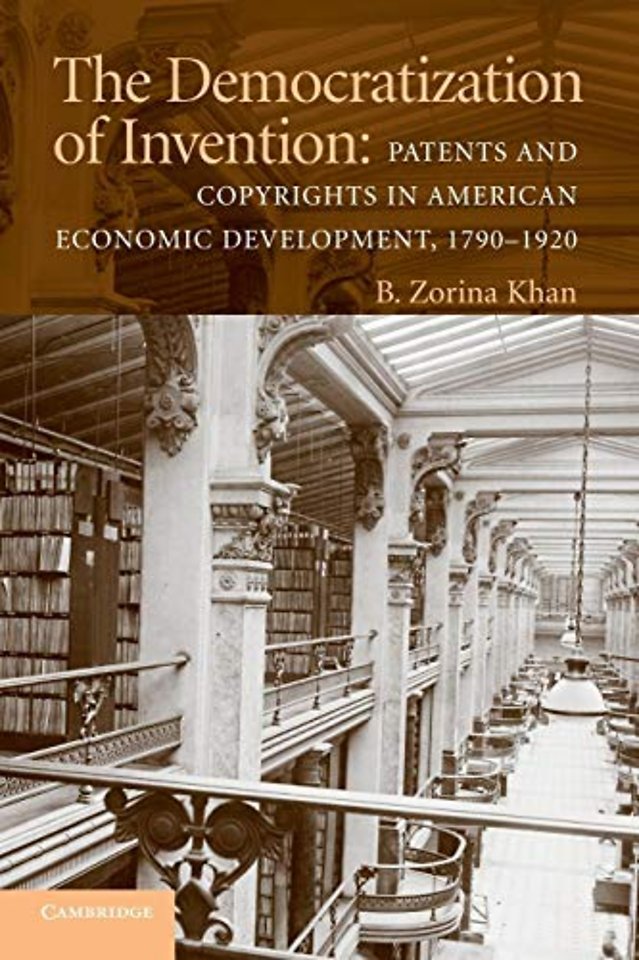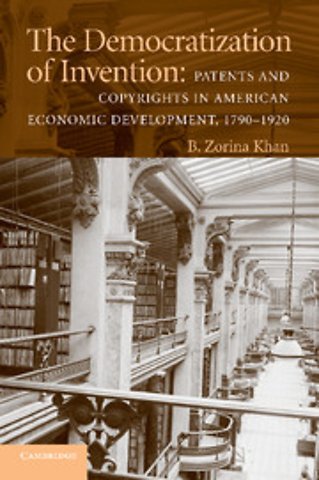The Democratization of Invention
Patents and Copyrights in American Economic Development, 1790–1920
Samenvatting
This book, first published in 2005, examines the evolution and impact of American intellectual property rights during the 'long nineteenth century'. The American experience is compared to Britain and France, countries whose institutions reflected their oligarchic origins. Instead, US patent and copyright institutions were carefully calibrated to 'promote the general welfare'. The United States created the first modern patent system and its politics were the most liberal in the world toward inventors. When markets expanded, these inventors contributed to the proliferation of new technologies and improvements, many of which proved to be valuable both in economic and technical terms. American patent and copyright institutions not only furthered economic and technological progress but also provided a conduit for the creativity and achievements of disadvantaged groups.
Specificaties
Inhoudsopgave
Net verschenen
Rubrieken
- aanbestedingsrecht
- aansprakelijkheids- en verzekeringsrecht
- accountancy
- algemeen juridisch
- arbeidsrecht
- bank- en effectenrecht
- bestuursrecht
- bouwrecht
- burgerlijk recht en procesrecht
- europees-internationaal recht
- fiscaal recht
- gezondheidsrecht
- insolventierecht
- intellectuele eigendom en ict-recht
- management
- mens en maatschappij
- milieu- en omgevingsrecht
- notarieel recht
- ondernemingsrecht
- pensioenrecht
- personen- en familierecht
- sociale zekerheidsrecht
- staatsrecht
- strafrecht en criminologie
- vastgoed- en huurrecht
- vreemdelingenrecht

